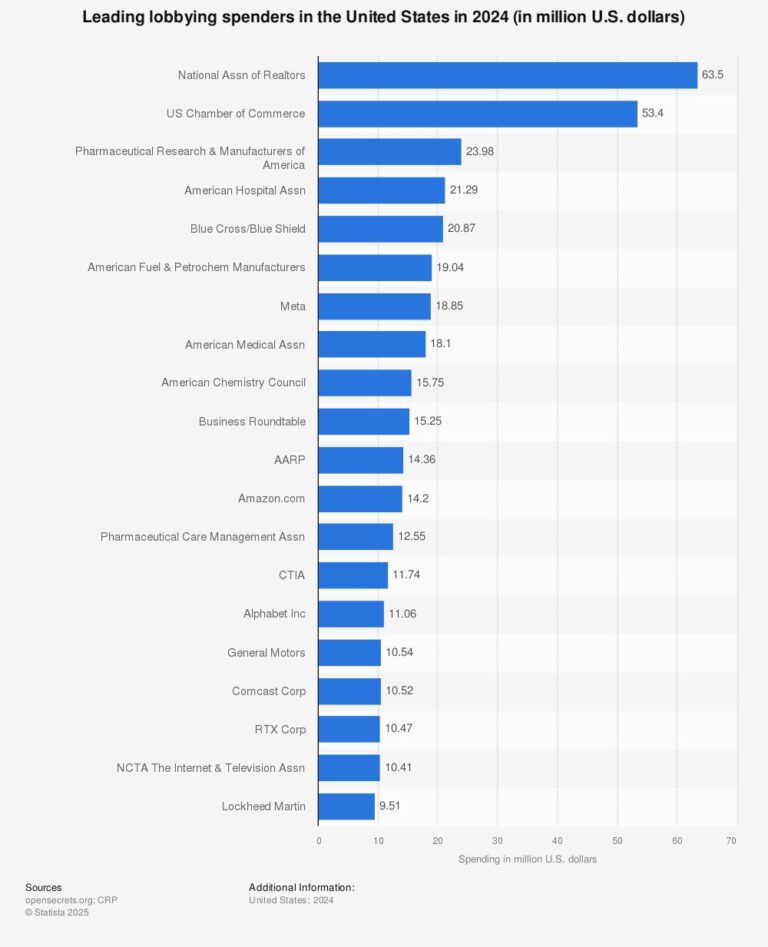US lobby groups are intensifying pressure on Washington to impose tariffs on Australian goods in response to Canberra‚Äôs publicly funded healthcare system, which they derogatorily label as “socialised medicine.” This latest salvo highlights escalating tensions between the two close allies over health policy and trade, as American interest groups argue that Australia’s Medicare model undermines US pharmaceutical and medical sectors. The push for tariff retaliation comes amid broader debates about the role of government in healthcare and the protection of domestic industries in an increasingly globalized market.
US Lobby Groups Demand Tariff Retaliation Over Australian Healthcare Policies
Powerful US lobbying organizations have called for aggressive trade measures against Australia, targeting its publicly funded healthcare system. These groups argue that Australia’s model, often labeled as “socialised medicine,” distorts fair competition and disadvantages American pharmaceutical companies. They claim this system enables price controls and reimbursement limits that undercut US drug exports, urging Washington to impose tariffs as a form of economic retaliation. The proposal has sparked widespread debate on the balance between national sovereignty in healthcare policy and global trade fairness.
- Trade impact concerns: Lobbyists warn that Australia’s healthcare pricing policies lead to “unfair market distortions.”
- Economic stakes: US pharmaceutical firms stand to lose billions if current pricing frameworks continue unchecked.
- Potential retaliation: Tariffs aimed at Australian imports could escalate trade tensions between the two countries.
- Policy debate: Critics argue that using trade sanctions to influence domestic healthcare systems sets a dangerous precedent.
| Aspect | US Lobby Groups’ Position | Australian Response |
|---|---|---|
| Healthcare Pricing | Unfairly low due to government policies | Essential to ensure affordability |
| Trade Measures | Tariffs needed as leverage | Claims tariffs threaten bilateral relations |
| Market Competition | Distorted by state-run system | Balanced by universal coverage goals |
Economic Implications of Targeting Australias Socialised Medicine System
The escalating pressure from US lobby groups demanding tariff retaliation against Australia’s socialised healthcare system raises significant economic concerns. Such actions could disrupt trade relations, potentially escalating tariff barriers not only on pharmaceuticals but across multiple sectors. This, in turn, threatens to increase the cost of medical supplies and equipment in Australia, putting added strain on public health funding and leading to higher out-of-pocket expenses for patients.
Beyond healthcare, the ripple effects of targeting Australia’s Medicare could jeopardize broader economic stability. Key industries may face retaliatory tariffs, affecting export competitiveness. The following table illustrates a simplified projection of potential tariff impact on key Australian export sectors if US demands escalate:
| Sector | Estimated Tariff Increase | Potential Economic Impact |
|---|---|---|
| Agriculture | 15% | Reduced export volumes, job losses |
| Manufacturing | 10% | Higher production costs, supply chain delays |
| Pharmaceuticals | 25% | Costly imports, budget overruns in healthcare |
| Services | 5% | Decreased foreign investment, slower growth |
- Budget pressure: Rising tariffs could force cuts in other social services.
- Healthcare access: Increased medical costs might limit access for vulnerable populations.
- Trade disputes: Prolonged tensions may invite broader retaliatory measures from multiple countries.
Analysis of Trade Relations and Potential Escalation in US Australia Disputes
The recent calls from US lobby groups urging tariff retaliation against Australia signal a deepening rift in bilateral trade relations. These groups argue that Australia‚Äôs publicly funded healthcare system, often labeled as “socialised medicine,” unfairly subsidizes pharmaceutical products, disadvantaging American drug manufacturers. The dispute has raised alarms not only about immediate trade barriers but also about the potential for a broader economic confrontation between two traditionally strong allies. Analysts note that if the US follows through, it could provoke retaliatory measures from Australia, jeopardizing years of cooperative trade agreements.
The situation underscores a complex intersection of healthcare policy and international trade law. Key points of contention include:
- Alleged Subsidization: US lobbyists claim Australian healthcare financing distorts market competition by artificially lowering drug prices.
- Tariff Measures: Proposed US tariffs aim to pressure Australia into reforming pharmaceutical pricing but risk escalating trade tensions.
- Diplomatic Impact: Disputes over healthcare may spill over into other sectors, affecting trade in agriculture, technology, and defense.
| Issue | US Position | Australia Response |
|---|---|---|
| Pharmaceutical Pricing | Claims of unfair subsidy | Defense of universal healthcare model |
| Trade Tariffs | Calls for retaliatory tariffs | Warning of countermeasures |
| Diplomatic Relations | Risk of broader trade conflict | Committed to dialogue but cautious |
Policy Recommendations for Navigating Healthcare and Trade Tensions
To mitigate escalating tensions between the US and Australia over healthcare policies, a multi-faceted approach is essential. Policymakers should prioritize diplomatic engagement that fosters mutual understanding of public health values and trade interests. This includes establishing bilateral forums for transparent dialogue, designed to reconcile differences without resorting to punitive tariffs, which may further strain relations and disrupt supply chains. Emphasizing shared goals such as universal access and innovation can pave the way for collaborative solutions rather than adversarial stances.
Additionally, governments and industry stakeholders must work together to develop a framework that balances protection of domestic industries with respect for sovereign healthcare models. Key actions include:
- Enhancing regulatory cooperation to reduce compliance costs and eliminate duplicative trade barriers.
- Investing in joint research initiatives that can drive affordable, innovative healthcare technologies benefiting both nations.
- Implementing dispute resolution mechanisms tailored to healthcare-related trade conflicts to avoid escalation to tariffs.
| Recommendation | Expected Outcome |
|---|---|
| Diplomatic Bilateral Forums | Improved dialogue, reduced tensions |
| Regulatory Harmonization | Lower trade barriers, smoother market access |
| Joint R&D Investment | Innovative affordable healthcare solutions |
| Customized Dispute Mechanisms | Swift conflict resolution, tariff avoidance |
Final Thoughts
As tensions over healthcare policy deepen, the calls from US lobby groups for tariff retaliation against Australia’s publicly funded medical system mark a significant escalation in transpacific trade relations. How Canberra responds in the coming months will be closely watched, with potential repercussions not only for bilateral ties but also for broader global debates on healthcare, trade, and national sovereignty. The evolving dispute underscores the complex intersection of economic interests and social policy on the international stage.




